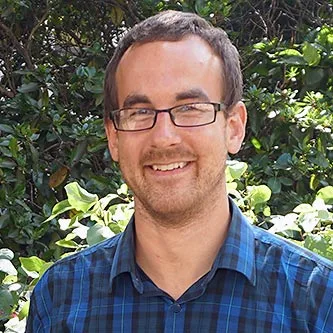Background
I come from being part of a family line of teachers and educators, and this background instilled in me the importance and joy of education. To continue this tradition, I joined the UH faculty in 2016 as a Pacific Island Archaeologist. Originally from the Midwest, I have broad archaeological experience, both in the continental US (Montana, Wyoming, North Dakota) and the Pacific Islands (Samoa, Hawai’i, Tokelau, New Zealand). While archaeology is certainly by sub-field specialty, I view myself as a broadly trained anthropologist and attempt to integrate multiple sub-fields in my own research and teaching. I find that I am lucky to work in a place such as Oceania where sub-field integration is incredibly beneficial.
Education
- PhD, Anthropology. University of Auckland, 2015
- MS, Anthropology, North Dakota State University, 2011
- BA, Anthropology, North Dakota State University, Magna Cum Laude, 2009
Courses
- ANTH 151: Emerging Humanity
- ANTH 210: Archaeology
- ANTH 323: Pacific Islands Archaeology
- ANTH 328: Food Origins, Food Culture
- ANTH 447: Polynesian Cultures
Specializations
Environmental Archaeology, Agriculture, Oceania
College Award
Research
My research examines the recursive relationships between humans and Pacific island environments. I approach this from an interdisciplinary perspective applying spatial, ecological, and geomorphological techniques to the study of settlement systems and environments, with expertise in GIS and environmental archaeology. My theoretical interests are closely aligned with historical ecology, and my recent work has sought to understand long-term human-environmental relationships through the perspective of Niche Construction Theory. Much of my recent substantive research has explored how the evolution of food production comes to form feedback loops with socio-political change and environmental modification.
Community Engagement
I see community engagement as a significant part of teaching and researching. As such, I attempt to integrate the community in my research endeavors and provide community lectures when possible. High school and university age students are often an integral part of my field research in Samoa and elsewhere as crew members and cultural liaisons. Some of these students have gone on to pursue undergraduate and graduate degrees. Our field school partnerships with Kamehameha Schools and the National Park Service have allowed us to better engage with and receive feedback from local communities here in Hawai’i. These various community partnerships have resulted in research that is more relevant to community concerns and goals, namely food sustainability and resiliency.
International Collaborations
Having been trained at an international institution, international collaborations are a key component to my teaching and research. I have ongoing partnerships with the University of Auckland, New Zealand that expands archaeological research in the Samoan archipelago. This research has benefited greatly from a partnership with the National University of Samoa and their interest in student training. I look forward to expanding these collaborations in the future in order to provide further opportunities for students abroad.
